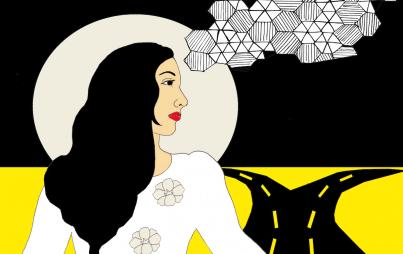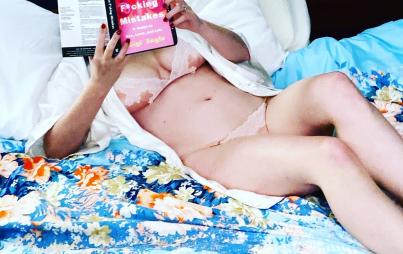
Wes Anderson's terrific new film, The Grand Budapest Hotel, features one of the most delightful protagonists in recent film memory: the brash, cursing, genteel, poetry-reading hotel concierge extraordinaire M. Gustave.
In addition to his many other dynamic qualities, it's clear Gustave, played to perfection by Ralph Fiennes, is bisexual. And this is pretty cool, because as we've written before, this sexual orientation remains a cultural enigma.
True, gay characters have been increasingly popping up in film, whether as stereotypically delightful BFFs of lead characters (My Best Friend's Wedding, Mean Girls), heroic figures in biopics (Milk, Philadelphia), or, more rarely, flawed but sympathetic real people in complex same-sex relationships (Blue is the Warmest Color). Yet bisexual characters remain noticeably absent from the silver screen.
In 2012, there was some chatter about macho ladykiller James Bond being portrayed as bisexual based on a homoerotic piece of dialogue in Skyfall. But the movie's screenwriter, as well as its star, Daniel Craig, brushed off the idea. There's also been discussion about the inspiration for Dallas Buyers Club being bi. But in the film, he was depicted as straight, presumably because "straight homophobic Texan helps gay cause" is a more compelling narrative.
With such scant coverage of bisexuality, Gustave truly feels like a revelation. He is openly effeminate and loves flowery poetry, but is also crude, vulgar and able to (spoiler alert!) orchestrate a prison break with beefy cons. Characters use the nasty euphemism for gay to describe him, but he also talks about his love of bedding (mostly older) women and openly flirts with the film's younger heroine.
He is a complex bisexual man who doesn't check off any conventional boxes of precisely what that means. And that is both rare and grand indeed.
Image: YouTube






